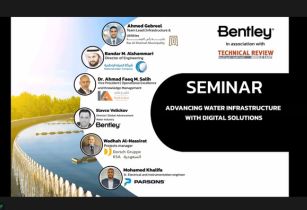On 3 June this year, Megger hosted an insightful webinar titled "Smart Grid Sensors: Flexible Solutions for Diverse Power Grids", drawing utility professionals and engineers eager to explore innovative grid management solutions.
The session, led by Johan Pryra, Senior Applications Engineer for Monitoring Solutions at Megger, delved into the critical role of adaptable, data-driven technologies in addressing the unique challenges of modern power distribution grids.
Pryra highlighted that while power grids may appear uniform globally, their designs and operational demands vary significantly across regions.
These differences create complex challenges for utilities, from aging infrastructure to integrating renewable energy sources.
Megger’s Smart Grid Sensors were presented as a versatile solution, offering flexibility and seamless integration without requiring extensive infrastructure overhauls.
Through real-world case studies, Pryra showcased how utilities across diverse geographies have successfully deployed these sensors to enhance grid reliability and efficiency.
The webinar emphasised practical applications, illustrating how the sensors provide actionable data to optimise grid performance.
For instance, Pryra shared examples of utilities leveraging real-time monitoring to detect faults, balance loads, and improve outage response times.
These deployments have resulted in measurable benefits, including reduced downtime and enhanced operational decision-making.
The session also explored how the sensors’ ease of integration supports varied customer use cases, making them a scalable solution for utilities of all sizes.
Attendees gained valuable insights into the technical and operational advantages of Megger’s solutions, with Pryra’s expertise grounding the discussion in practical, field-tested outcomes.
The webinar underscored Megger’s commitment to empowering utilities with innovative tools to navigate the complexities of modern grid management.
By fostering adaptability and data-driven strategies, Megger’s Smart Grid Sensors are helping utilities worldwide build more resilient and efficient power distribution systems, tailored to their unique needs.
Click here to view the full recording of the virtual panel session










